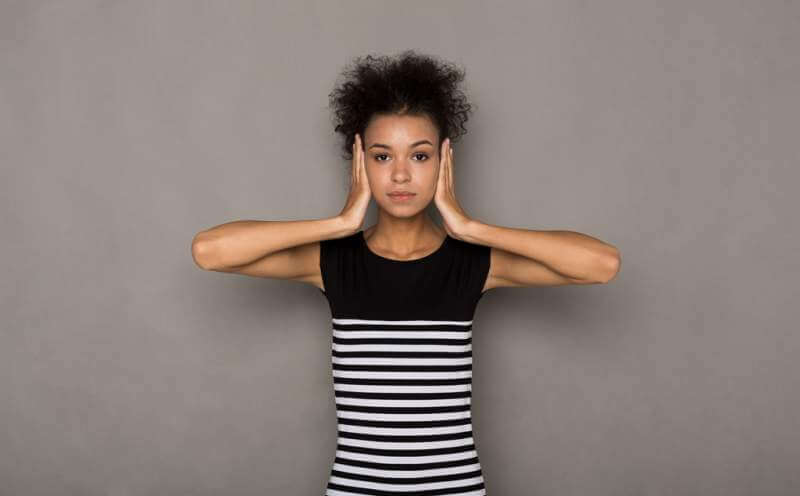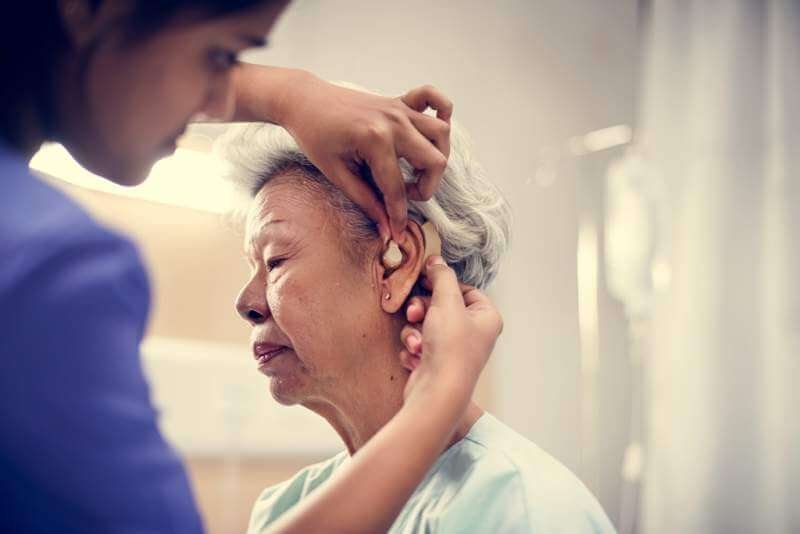Maintaining the health of your hearing is very important to the quality of your daily life. Being able to hear things clearly is something many of us rely on without thinking about it very much at all. The time to prevent hearing loss and keep your hearing health as good as possible is before you even start to notice things are going downhill.
It’s much easier for you to keep your hearing healthy for as long as possible than it is to repair damaged hearing. There are some habits you can pick up to help keep your hearing healthy for you. If you haven’t given it much thought before now, it’s still a good time to start learning. Here are some ways you can maintain healthy hearing in your life.
1. Protect Your Ears
 When you’re doing a loud activity think about the health of your hearing while you’re doing it. If you’re mowing the lawn, for instance, you can wear sound canceling headphones or even just plain earplugs to help protect your ears. You may have to take a few minutes to think about your activities and realize which ones require hearing protection but it’s worth the time spent.
When you’re doing a loud activity think about the health of your hearing while you’re doing it. If you’re mowing the lawn, for instance, you can wear sound canceling headphones or even just plain earplugs to help protect your ears. You may have to take a few minutes to think about your activities and realize which ones require hearing protection but it’s worth the time spent.
Keep in mind what you’re around, what activities you’re doing, and what small changes you can make to maintain your hearing health. Earplugs while mowing or doing other loud activities you may not have thought much about before can make a huge difference.
Noise canceling headphones instead of turning up your music to drown out background noise is another small change you can make that will have a big effect. Just pay attention to what you’re doing on a day to day basis and notice what might be louder than average. Make some changes to negate those louder sounds as much as possible to keep your ears protected and healthy.
2. Be Careful Of What You Put In Your Ears
 If you use cotton swabs or other small tools to remove wax build up from your ears consider opting not to do that. Wax build-up can reduce your hearing but cotton swabs can compact the wax down farther on your eardrum instead of helping with removing the wax. It will make the problem worse in the long run.
If you use cotton swabs or other small tools to remove wax build up from your ears consider opting not to do that. Wax build-up can reduce your hearing but cotton swabs can compact the wax down farther on your eardrum instead of helping with removing the wax. It will make the problem worse in the long run.
There are other tools available to you on the market that can harm your ears as well like a metal ear wax spoon. These types of tools can be sharp or made of very hard materials. Both of those things can damage your ear (and your hearing) if you aren’t careful. It’s best not to use them at all. If you need wax removed, visit your health care professional for safe removal of any build up.
3. Get Your Hearing Checked Regularly
 If you haven’t noticed any signs of hearing loss you may think you don’t need your hearing checked on a regular basis. The truth is hearing checks should be part of your regular healthcare routine. If you’re already getting a physical every year, make sure your hearing health is on the list of things to be checked.
If you haven’t noticed any signs of hearing loss you may think you don’t need your hearing checked on a regular basis. The truth is hearing checks should be part of your regular healthcare routine. If you’re already getting a physical every year, make sure your hearing health is on the list of things to be checked.
A hearing test can detect things you may not have noticed in your daily life yet. It’s designed to let you and your doctor know about hearing loss as early as possible. The earlier you know about any hearing issues, the more there is you can do to manage it. Don’t skip out on the hearing test even if you think your hearing is perfect.
4. Check Your Medications
 Some medicines can affect your hearing. They are often referred to as ototoxic medications and they can sneak up on you when it comes to hearing loss. Look at the side effects of any medication you are on. If you have concerns about a medication’s effects on your hearing talk with your doctor.
Some medicines can affect your hearing. They are often referred to as ototoxic medications and they can sneak up on you when it comes to hearing loss. Look at the side effects of any medication you are on. If you have concerns about a medication’s effects on your hearing talk with your doctor.
Chances are your doctor already has your hearing health in mind, but you can minimize risks of medication-related hearing lost by following all instructions about dosing and proper use of the medicine. If you think a medication is having a negative effect on your hearing your doctor can help you make the best decisions about continuing a medication or changing it for something else.
While you’re thinking about your medications keep in mind that nicotine is a drug as well. Nicotine is harmful to your hearing so if you smoke or use other nicotine products, the best option to maintain your hearing health is to quit using those things. Again, if you have questions about this switch, you should visit your doctor and discuss any planned changes with them.
5. Stay Physically Active
 Being physically active isn’t just good for your health overall, it’s also great for your hearing health. When you’re doing things that increase your circulation like physical activity your ears benefit as well. Your inner ear demands a lot more energy from your body to stay healthy than you might think, so keeping up with a healthy work out routine is a great way to help them out.
Being physically active isn’t just good for your health overall, it’s also great for your hearing health. When you’re doing things that increase your circulation like physical activity your ears benefit as well. Your inner ear demands a lot more energy from your body to stay healthy than you might think, so keeping up with a healthy work out routine is a great way to help them out.
If you can’t do cardio based workouts you can try things like yoga or other stretching type workouts. The goal is to just remain active, so even if you can’t go jogging you still have options. If you aren’t sure what your best options are, your doctor can help you decide on what some good healthy exercise options are for you.
It might be easy to think working out has nothing to do with your hearing health but as you can see, that’s not the case at all. If you needed an extra reason to get moving, you have one now. Healthy hearing relies on healthy physical activity just as much as any other part of your body.
When it comes to the health of your ears and hearing there are simple things you can do every day to make some positive changes. You’ve learned about several things you can do already. Making small changes like using earplugs or noise canceling headphones, and considering being more active aren’t huge changes in your daily life but they’ll make a big difference.
If you keep in mind what you’ve read here and talk with your doctor about any concerns you have, your hearing will stay as healthy as possible for as long as possible. Remember to keep making the right choices about your hearing and use those choices to enjoy life a little more. Small changes will mean big results for you, and that’s a great thing.
